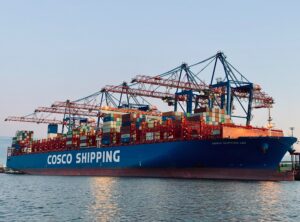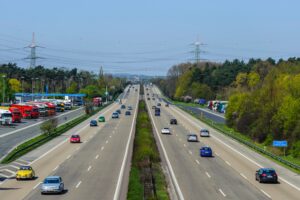 Transportation is a fundamental aspect of modern society, enabling people and goods to move across the globe. However, the environmental impact of transportation, particularly in terms of greenhouse gas emissions, cannot be ignored. As the climate crisis intensifies, it becomes increasingly crucial to recognize and address the role of transportation in fuelling climate change. Transportation globally contributes to the climate crisis and there is an urgent need for sustainable alternatives.
Transportation is a fundamental aspect of modern society, enabling people and goods to move across the globe. However, the environmental impact of transportation, particularly in terms of greenhouse gas emissions, cannot be ignored. As the climate crisis intensifies, it becomes increasingly crucial to recognize and address the role of transportation in fuelling climate change. Transportation globally contributes to the climate crisis and there is an urgent need for sustainable alternatives.
Greenhouse Gas Emissions and Carbon Intensity
Transportation is a significant contributor to global greenhouse gas emissions. According to the International Energy Agency (IEA), the sector accounted for around 24% of energy-related CO2 emissions in 2020. Road vehicles, including cars, trucks, and motorcycles, are the primary source of transportation emissions. These vehicles burn fossil fuels, releasing carbon dioxide (CO2) and other greenhouse gases into the atmosphere. Furthermore, air travel and shipping also contribute to emissions, with international flights and maritime transport accounting for a significant portion of the transportation sector’s carbon footprint.
Dependency on Fossil Fuels
The transportation sector heavily relies on fossil fuels, particularly gasoline and diesel. The burning of these fuels releases carbon dioxide and other pollutants, contributing to global warming and air pollution. The extraction, refining, and transportation of fossil fuels also have environmental consequences, including habitat destruction and water pollution. The dependence on fossil fuels not only exacerbates climate change but also makes the transportation sector vulnerable to price fluctuations and supply chain disruptions.
 Urban Sprawl and Inefficient Infrastructure
Urban Sprawl and Inefficient Infrastructure
Urban sprawl, characterized by the expansion of cities into suburban and rural areas, has significant implications for transportation and climate change. As cities spread out, commuting distances increase, leading to longer and more energy-intensive journeys. Additionally, the lack of efficient public transportation systems and infrastructure that promotes walking, cycling, and carpooling further contributes to increased greenhouse gas emissions. The need for better urban planning and sustainable transportation options is paramount in addressing the climate crisis.
Air Travel and Shipping Impacts
Air travel and shipping, while vital for global connectivity and trade, have substantial environmental consequences. Aircraft emit large amounts of CO2, as well as nitrogen oxides (NOx), which contribute to the formation of ozone and the degradation of air quality. The growth of air travel worldwide, coupled with the inefficiency of older aircraft models, intensifies the sector’s carbon footprint. Similarly, shipping, primarily fuelled by heavy fuel oil, emits substantial amounts of CO2, sulfur oxides (SOx), and nitrogen oxides (NOx), impacting both climate change and air quality.
The Need for Sustainable Alternatives
Addressing the climate crisis necessitates a shift towards sustainable transportation alternatives. This includes a combination of technological advancements, policy interventions, and changes in individual behaviour. Electric vehicles (EVs), powered by renewable energy sources, offer a promising solution to decarbonize the passenger vehicle sector. Investment in public transportation systems, cycling infrastructure, and walkable cities can encourage the use of more sustainable modes of transportation. Additionally, exploring alternative fuels, such as biofuels and hydrogen, and promoting intermodal freight transportation can help reduce emissions from shipping and logistics.
The transportation sector’s significant contribution to global greenhouse gas emissions highlights the urgent need for action to address the climate crisis. Reducing the carbon footprint of transportation requires a multifaceted approach, involving shifts towards sustainable alternatives and infrastructure improvements. From embracing electric vehicles and expanding public transportation systems to promoting smart urban planning and encouraging behavioural changes, we can strive towards a more sustainable and climate-resilient transportation sector. By taking collective action, we can mitigate the impact of transportation on climate change and pave the way for a more sustainable future.






